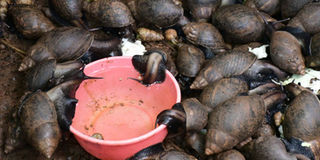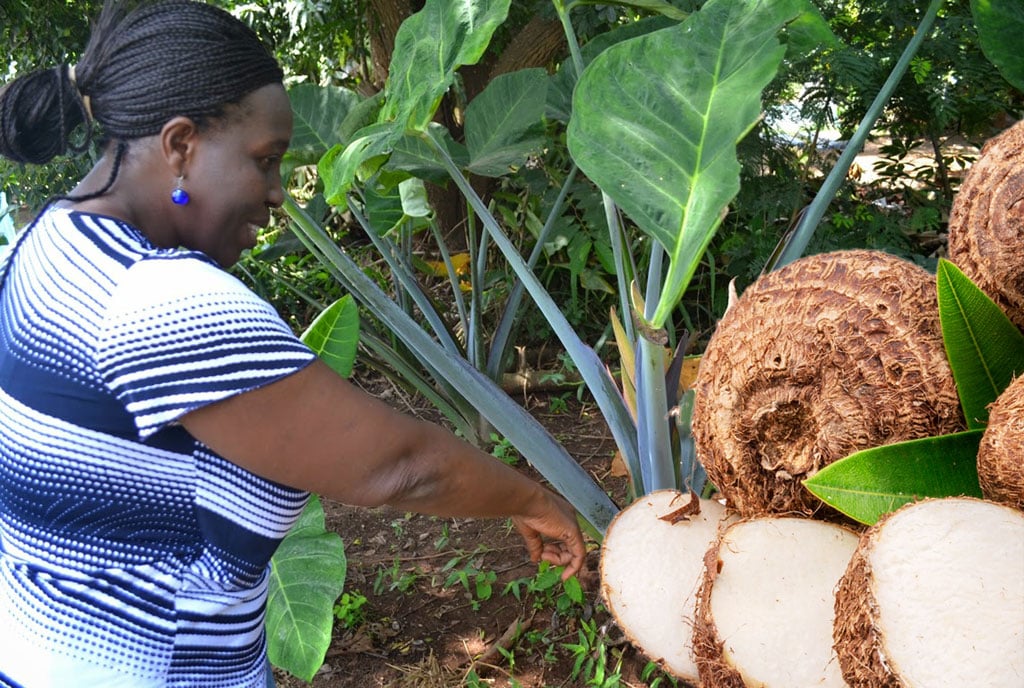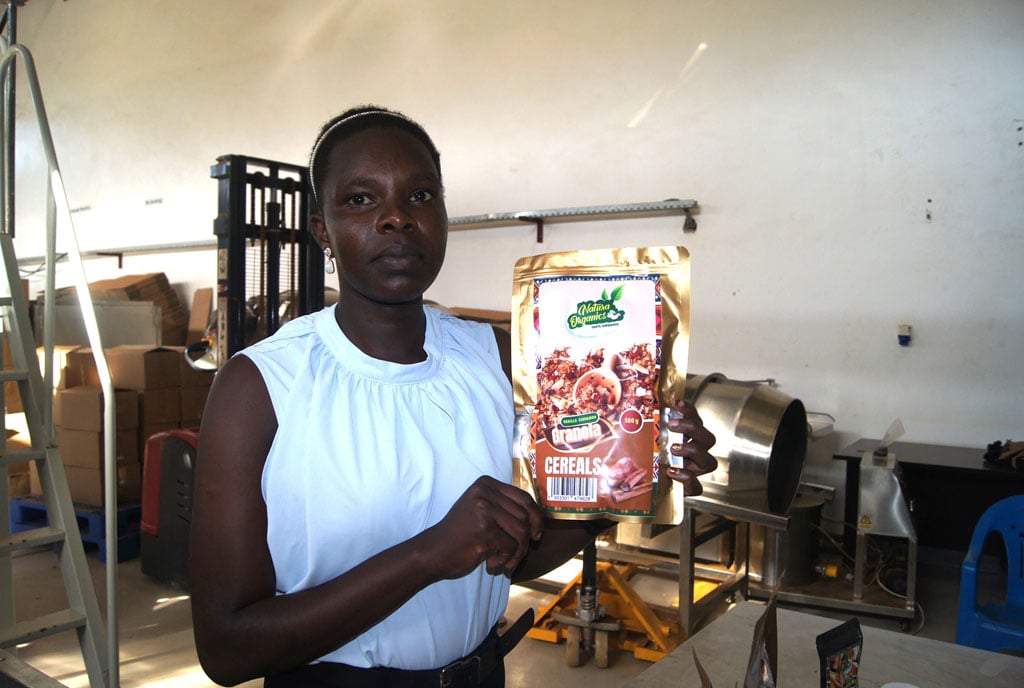Snails are Mugisha’s cash cow

Some of the snails at Lucy Mugisha’s farm. The farmer sells them to West Africans who live in Uganda. She also supplies some to major hotels in Kampala. Photo by Edgar R. Batte.
To the average Ugandan, snails are a no-way for a delicacy but for Lucy Shillingi Mugisha, they are meal and a cash cow.
She rears some 35,000 snails in the urban suburb of Kisaasi to supply those whose culinary preferences are accommodative of the terrestrial crawlers as well as make a number of cosmetic products.
Starting
The idea of rearing snails started on her farm in Busunju two years ago but the motivation was during her consultancy stint in West Africa, as a public health specialist.
Locals in that part of the world treasure snails. It is a delicacy for the well-to-do. She was doing consultancy for Save the Children UK in Ghana. She had a house and decided to rent out the guest wing to the Ghanaian Mother Union. “One day, the women woke up and the compound was full of snails. It was a rainy season. They asked my late husband to change their menu, remove all the meat and showed him their special meal of snails,” she recalls.
Her husband called her asking her not to buy beef. On her return to Uganda, the idea of rearing snails kept playing in Mugisha’s mind. One rainy morning she woke up to a sight of about 200 snails scattered on her farm.
She was set. She needed more space to rear them and decided to turn her commercial complex that housed a health club, in Kisaasi, into a hatchery. She renamed it ‘the snail tower house’.
Turning point
“With support from Microfinance Support Centre (MSC), I turned parts of the health centre into hatcheries and a training centre. I decided to do value addition because I knew it was the sure way for me to make money. I received about Shs300m which I am using to run the farm and also acquire machinery,” she recollects. She reared the 200 and they started producing.
Meanwhile, she also started doing some reading, for research. She found out that snails lay eggs in porches, and a healthy snail can lay between 250 and 500 eggs at ago.
“When you look after the eggs very well, in a month each can give you a juvenile. If you look after them well, in six months you will have many young snails. In another three months, you will have a mature snail. If you take good care of the snails, they will start to lay eggs,” Mugisha explains.
Agronomy
She says that it is ultimately about the passion one has or develops that determines how well they can prosper at snail farming. They don’t take purified water, with chlorine or salts.
“Salts kills them very quickly. They drink water without purities. They eat everything green but mainly the vegetable family of cabbage, sukumawiki, spinach. They also love watermelon. Snails have teeth. If you put them on a microscope and look at its mouth, they have millions of teeth. Have time for them; watch and observe them,” she further explains.
For example, she did research in order to convince funders. “As much as I had some small capital, I didn’t have enough money. I wanted to make cosmetic products. The products that come into the country from South Korea and China and are very expensive organic products. I went on to research about them. I found out that snails are of different types. Ours are called the African giant snails. If you go to France and Italy, you will find another type,” she adds.
Her reading had included machinery that she will use in the production processes of the cosmetics, using slime as one of the raw materials, for making cream.
She makes soap from slime which, from research online, has healing elements, just like the creams and lotions. She is targeting families; both men and wealth as well as children.
Her input is close to Shs500m which includes the commercial building on which the farm is situated. Top on her wish list is to start a production line. She has done the market analysis.
“Innovation takes time so one needs to be patient. As an innovator, you are a vision bearer. There is so much around us that can come to fruition through innovation,” she further explains. Patenting and registration of her products is a learning phase.




